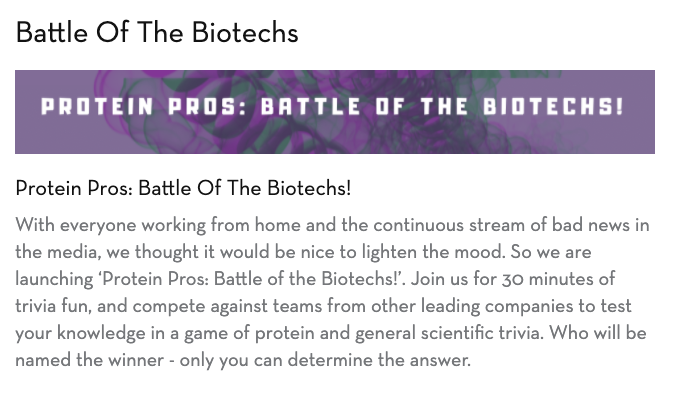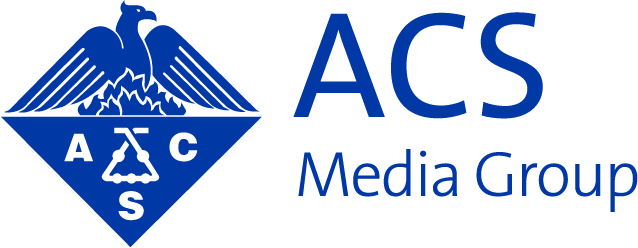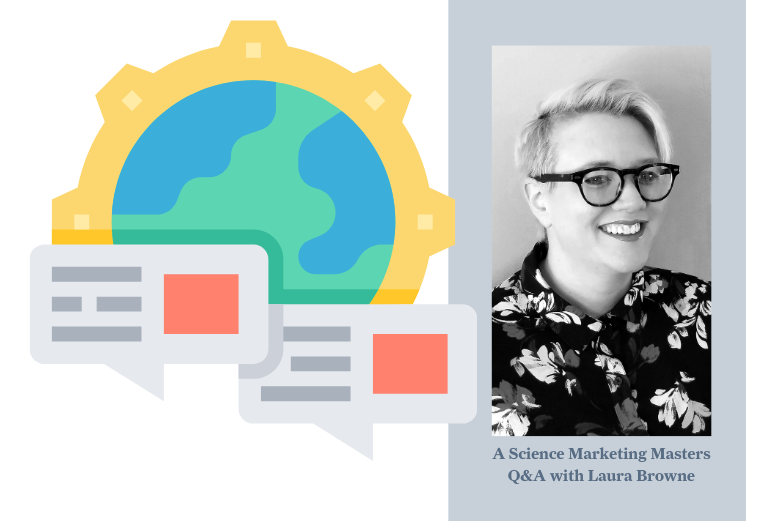Laura Browne is the Chief Effectiveness Officer at Covalent Bonds, a marketing strategy company of data scientists, media analysts, marketing specialists and project managers who work with companies in the life sciences. She recently spoke with us at ACS Media Group and offered her advice on how science marketers should handle crises, and the successful shifts she’s already seen from those in our space.
Thanks for taking the time to answer our questions, Laura. Can you tell us a little bit about your firm? What’s some of the work you’ve been doing recently, in light of the pandemic and resulting marketing shifts?
The COVID-19 crisis, while devastating, provides some unique opportunities to scientific marketers, who typically have a harder challenge than their peers in reaching their target audience. Currently, many scientists are working from home, therefore, using their computers more. This provides marketers with a unique opportunity to harness the availability of scientists and use the plethora of anonymous data from their online behavior. This data enables marketers to be more strategic with their programs, both in terms of planning what to do, but also in evaluating the impact of their budgets and efforts.
As a data-led marketing strategy company, we have seen an increase in companies taking advantage of this access by running persona studies, for example. We work with the client to combine qualitative and quantitative market research data with a digital behavior analysis to get a full 360 degree understanding of their target audience. By doing this, we get a picture of who the target audience actually is based on data, not assumption or history. We also get an understanding of how they think (rational – quantitative), they feel (emotional – qualitative) and then how they actually behave (digital). This empowers marketers to target much more effectively and get much better results.
We are also seeing an increase in companies taking this time to put in the foundations to become data-led. They are looking at their marketing technology stack, and building a system that provides the data they need to make better marketing planning decisions, and measure the effectiveness of their marketing spend.
Sales cycles in our industry tend to be long, and when a crisis hits, that can potentially further delay purchasing decisions. What pivots should marketers be thinking of now, in order to prepare for what’s ahead?
Keep marketing! There have been a number of studies that demonstrate the advantages of at least maintaining budgets during a weaker economy or crisis. In fact, marketers that increase spending, increase sales and market share during the crisis and afterwards. In the 1990-91 recession, Pizza Hut exploited that McDonald’s dropped its marketing budget. As a result, Pizza Hut increased sales by 61% and McDonald’s sales declined by 28%.
Companies should focus on filling the top of the funnel and keeping people engaged in a way that is not ‘salesy’. Then when budgets free up, and you are able to get back in the door of your potential customers, you can pivot to a more sales-focused message. For companies that stop or curtail marketing during this crisis, their pipeline is likely to dry up, and they will have to start from scratch.
Related to shifting your marketing strategy, what shifts in a marketer’s budget are you recommending to your clients?
Marketing and PR budgets are often the first to be slashed. This is usually to the detriment of the long term health of a company. People start to make decisions based on gut feel, fear and assumptions, rather than using data and evidence to inform action.
Times like these are when a solid marketing and communications measurement program comes into its own. Having a system in place that provides evidence of the success of your programs, and quantifies return on investment, enables you to make strategic decisions on what to stop doing, and more importantly what to do more of.
Using data and metrics to evaluate whether a marketing campaign has had the desired impact, removes subjectivity when justifying budgets. If you have prescribed what success will look like in advance, and pre-agreed with all stakeholders and budget decision-makers what metrics will be adequate to demonstrate progress to goal, it is much easier to justify changes in spend.

Having said that, most of our clients have diverted budgets to value-led programs as opposed to sales-led ones. One instrumentation manufacturer has taken a light hearted approach and launched a weekly quiz session called Protein Pros: Battle of the Biotechs. The aim is to bring some fun and diversion to its target audience during the lock-down. The data is not yet in to measure the impact, but early signs look good.
That’s a great example, which is also a perfect tie in for our next question: What messaging have you seen work in times of crisis? What will resonate with a scientific audience?
Authenticity! Companies that are seen to be exploiting the crisis are being – at best – ignored, and at worst treated with derision. Only put out a message if it has some benefit to the audience. Just saying you care, or are here for them, means nothing. Explain what you are doing to make life easier for your target audience. And if you aren’t, you are much better off saying nothing. You must have credibility for what you say.
If you manufacture reagents for example, and your team doesn’t usually work remotely, don’t start providing advice on how to work well from home. Instead explain how you are ensuring a continuous supply of your product, to help keep your clients working.
A simple example is from an organic chemistry CRO based in Massachusetts, who within hours of the shelter-at-home order being issued, sent a letter to its database titled ‘Our Business Continuity Plan to Provide you with Uninterrupted Service’. This resulted in a spike of new business from companies looking to replace their locked-down Chinese CROs with US-based suppliers.
Pivoting back to analytics, how do you typically measure PR, and how do you measure PR *right now*? Do the metrics change during a crisis?
The key is to define what success will look like from a PR strategy at the outset. If you clarify what the business objective is that you are using PR to address, the metrics roll out of this. Typically companies use PR to ensure they are at least as visible as their competitors in the media, and that they are being quoted as thought leaders, in order to add credibility to what they say. Therefore define, in advance, what messages need to be included in a write-up in order for it to be deemed a success. Then assign a content quality score for each message that is published. These elements now give you a method for evaluating the impact of the piece. Measuring share of voice versus competitors, and doing pre and post campaign surveys, also provides the data needed to evaluate media effectiveness, – and justify budget increase.
It is important to design measurement into marketing and communications programs. I love the way Kristen Garvey, who is head of corporate communications at Waters, described it to me: “If you can’t measure it, you should question whether you should do it. When you set objectives, tie a metric to that objective”. This enables people to adjust programs while they are running.
In-person events are incredibly important, to make connections, collect leads, and even conduct analysis on what competitors are doing. Meanwhile, lead generation programs have been gaining popularity for years. With all the power behind virtual events, from measurement to brand awareness, what kind of a return do you see to traditional event marketing tactics? Is the exhibit hall dead?
This scenario is analogous to the fate of direct mail. North American direct mail volume declined from 93.1 billion pieces in 2008 to 77.9 billion pieces in 2014 (data from the CMO Council). This contrasts with the popularity of email campaigns which have increased exponentially. However, with the increase in email has come a decrease in impact, with open rates declining dramatically. This makes marketers look for alternative ways to stand out from the crowd. Re-enter direct mail. A modest direct mail growth is now projected for the coming years.
This cycle is likely to be replicated with events. As people become overwhelmed with the volume of online events, they will look for the novel. This may well be in-person events.
And these ebbs and flows are natural. We have anecdotal evidence that LinkedIn is also facing the same challenge in light of COVID-19. At the start of the crisis there was a surge in activity on the platform, but that has resulted in a decrease in the quality of the interactions: More sales pitches and less meaningful engagement. We are starting to see signs that LinkedIn usage is beginning to decrease as people become inundated.
It will be interesting to see where people will go, and how marketers will respond. My guess is that tools that enable direct meaningful engagement will increase. We are seeing weekly virtual networking events that are extremely targeted gaining traction, for example.
We see your team has been committed to running virtually for a long time already. Any tips to share on what makes for a cohesive team?
Do not underestimate the importance of daily and proactive engagement with your teams. We learned early that we had to schedule time in the calendar to meet regularly throughout the day ‘just to chat’. This helps avoid miscommunication and accidentally leaving people out of the loop. Over-communicate with your teams. This will feel strange at first, but it will reap rewards!
Also, embrace technology that enables collaboration and helps break down data silos. This is not just in terms of project management, but also marketing technology. It is so much easier if you have a system in place that anyone can log into to get the data and answers they need, as opposed to having to ask someone.
Thanks to Laura for sharing her insights with us!

Covalent Bonds helps companies harness the power of their data to ensure maximum marketing results. They help companies working in scientific industries to use data to optimize their activities throughout each stage of their marketing programs, from strategy and planning, content development, program optimization to measurement and reporting.
Subscribe to their podcast: Talk Life Science Marketing Analysis to hear interviews with companies such as Thermo Fisher Scientific, Waters and Nanotemper on how they use data to make better marketing decisions.
More information is also available on their website.


















